IIAR Board Advances Standards, Undertakes New Initiatives, and Celebrates Members
IIAR has recently had its June board meeting, and the board took action on several critical IIAR standards and initiatives, welcomed new committee chairs, and celebrated members who have devoted valuable time and expertise to the industry.
The board approved IIAR doing business as the International Institute of All-Natural Refrigeration to help demonstrate IIAR’s role in advancing all types of natural refrigerants.
The board also approved releasing IIAR’s Hydrocarbon Standard for public review, making it public on July 7. Don Faust, chairman of the Standards Committee, said three of IIAR’s closed circuit ammonia refrigeration system Standards, IIAR 5-2019 Startup, IIAR 6-2019 Inspection, Testing and Maintenance, and IIAR 7-2019 Developing Operating Procedures, are all in process of being updated, but none have publication dates for this year. Internal relief valve discussions are still underway. Additionally, IIAR 9-Minimum System Safety Requirements for Existing Systems will be getting an addendum later this year to address issues users have addressed making compliance difficult.
During the meeting, Wayne Borrowman, chairman of the CO2 Handbook Committee, provided an update on the handbook. Three subcommittees are working to coordinate updates, and the objectives are to ensure the handbook is consistent and identify chapter revisions with timelines. The goal is to have updates completed later this year.
IIAR’s board voted to establish a collaborative agreement with ANFIR, an advocate association in Mexico with similar goals and values as IIAR. Yesenia Rector, IIAR’s meetings and international program director, discussed ANFIR’s mission and said it would be a great partnership, similar to the relationships IIAR has in Costa Rica and Columbia.
Dave Malinauskas, president at CIMCO Refrigeration and IIAR’s board chairman, proposed a new diversity and inclusivity initiative that he said is designed to encourage more people to join the industry. “The overarching goal is to ensure the IIAR is very welcoming to all. I think we need to be more inclusive, and we are putting together a policy for the IIAR staff, the executive committee, and all of the member organizations,” he said. “In the policy, we commit to managing and measuring our progress. It isn’t something that will happen overnight, but it will happen over time.”
The board issued a special thank you and term completion award to Mark Stencel who served as the education committee chairman. Additionally, Borrowman was welcomed as the CO2 Handbook Committee Chairman, Rob Baker was named the Safety Committee Chair and John Flynn was appointed Education Committee Chair. Also, Mark Tomooka joined the Government Relations Committee.
Chuck Hansen, one of IIAR’s founding members celebrated his 100th birthday, and the board recognized the milestone with a framed certificate signed by the board members and committee chairs making Chuck an Honorary Chair of IIAR. Hansen got involved in 1970 when there was a proposed change to the National Electric Code (NEC) that would have required the use of explosion-proof equipment in ammonia refrigeration engine rooms, a measure that would have proved ruinously expensive for the industry while doing little if anything to improve industry safety.
Hansen was one of four individuals who spearheaded the effort to develop a strategy to defeat the code change. Hansen helped create IIAR, signing the Documents of Incorporation in 1971 and becoming one of the original board members.
The board also approved IIAR’s 2023-2024 fiscal year budget, and Malinauskas said the association is in a healthy financial state.













